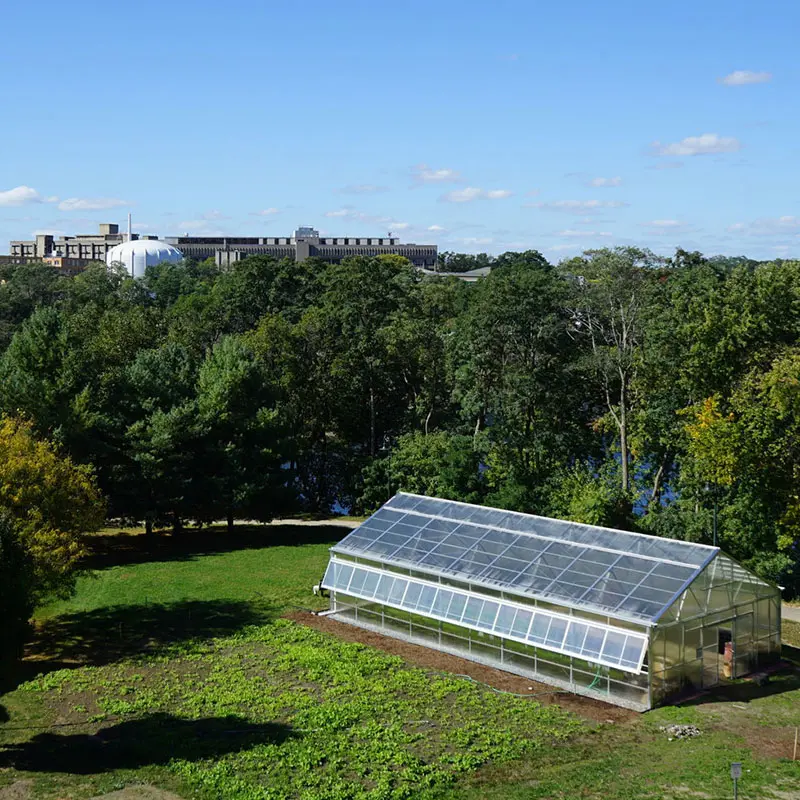
In 2017, UMass Lowell, in partnership with Mill City Grows, constructed an 1,800 square foot greenhouse in this location. In 2023, the footprint of the greenhouse doubled in size, which increased its production capacity to deliver more than 30,000 pounds of produce annually for local food pantries, mobile markets, and institutions. In addition to being a full-scale agricultural production site, this location also doubles as a testing ground where University researchers and students can work with community members to develop new and efficient ways to grow and develop organic and sustainable produce.
Local Partnerships
Working in tandem with students and faculty conducting research at the Rist Urban Agriculture Greenhouse and Farm is a local non-profit, Mill City Grows. Mill City Grows fosters food justice by improving physical health, economic independence, and environmental sustainability in Lowell through increased access to land, locally grown food, and education. At the heart of Mill City Grows' projects is their Urban Farm Program, which produces the seasonal fruits and vegetables that are then made available to the community.
The Rist Institute of Sustainability & Energy is also proud to boast our local partnership with the Lowell-based company, Craic (pronounced "crack") Sauce. As part of our partnership and close collaboration, Craic Sauce has been able to formulate its limited "UML Edition Craic Sauce," using peppers grown from UMass Lowell's very own Rooftop Gardens. You can find Craic Sauce's delicious hot sauces at the River Hawk Shop, or as you may have noticed, in the dining halls on campus!
Campus as a Living Lab
The Rist Urban Agriculture Greenhouse and Farm is used not only as a full-scale agricultural production site but also as a testing ground for university researchers and students to work with community members to develop new and efficient ways to grow and develop sustainable practices. The many on-campus efforts made by faculty, staff, students, and our local partnerships result in substantial environmental benefits and economic savings. To learn more about UMass Lowell as a living laboratory, visit Campus as a Living Laboratory.
